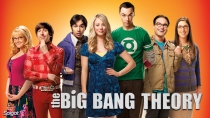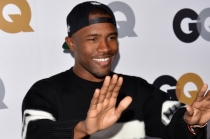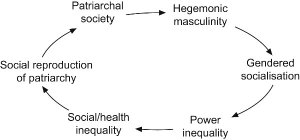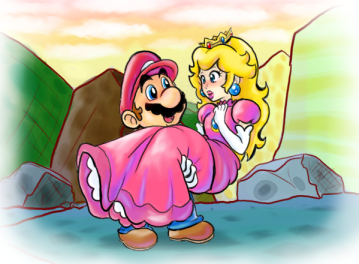Many colleges and universities across the United States are being challenged by men on their campuses as they are having a hard time being engaged, retained, or graduating. While institutions scramble to assist these students in their education and development, I challenge educators to consider the root cause of how society has determined how men should behave.
Masculinity and the expectations of what it means to be a male in society can be seen most easily throughout media; television, magazines, video games, movies, comic books, ads, etc. There are countless classical images I can think of that I have experienced even just in my childhood, to highlight a few…


What message was I to take away from these images as a child? That it was important to find & rescue my princess as well as beat up another person along the way? That in order for me to be a man I needed to be beyond human? As I continued to grow older I was consistently challenged by images of masculinity, seeing preeminent political figures and celebrities engrossed in sex scandals, abusing power, and encompassed in extreme images of masculinity, that I could not hope to match. All of these images cultivated a sense of hegemonic masculinity in my head as the only men that I saw being acknowledged or discussed were men who reinforced hegemony.
 However, it was not until I became an adult that I started to see new images of masculinity taking root in society. Harry Potter, while a heroic character, was a male character we saw deal with heartbreak, tragedy, loss, and only by giving himself selflessly for his loved ones was he able to make a true change.
However, it was not until I became an adult that I started to see new images of masculinity taking root in society. Harry Potter, while a heroic character, was a male character we saw deal with heartbreak, tragedy, loss, and only by giving himself selflessly for his loved ones was he able to make a true change. The Big Bang Theory has redefined and taken back the term nerd, giving it life and realizing a concept that it is not only important to be intelligent, but it can be cool as well.
The Big Bang Theory has redefined and taken back the term nerd, giving it life and realizing a concept that it is not only important to be intelligent, but it can be cool as well.
Robert Downey Jr.’s most recent portrayal of Iron Man, displayed a male character struggling with engaging his fears and anxieties and being vulnerable/needing armor in a way that is new and compelling.
Frank Ocean’s coming out experience as a hip-hop artist was embraced openly by some major celebrities/artists in 2012 showing the culture change in an industry that traditionally exuded & consistently reinforced hegemonic masculinity.
 Yet despite strides forward in the past decade, we are still seeing issues throughout our campuses and society. Sexual assault and the roles of men in it are becoming a more common discussion across the country, but how are we addressing the issues before it is enacted? College men are going through adjudication processes at higher rates than women. Men are also struggling with alcohol & substance abuse than previously seen. I believe that the core of these issues and more is how men see themselves as individuals and in relation to the world around them. Edwards (2009) discussed that males do not feel that they can meet the standards established as to what it means to be a man & are forced to wear a mask. This mask makes it harder for our males to determine who they are not only internally, but externally in their peer groups, institutions, relationships, and in society.
Yet despite strides forward in the past decade, we are still seeing issues throughout our campuses and society. Sexual assault and the roles of men in it are becoming a more common discussion across the country, but how are we addressing the issues before it is enacted? College men are going through adjudication processes at higher rates than women. Men are also struggling with alcohol & substance abuse than previously seen. I believe that the core of these issues and more is how men see themselves as individuals and in relation to the world around them. Edwards (2009) discussed that males do not feel that they can meet the standards established as to what it means to be a man & are forced to wear a mask. This mask makes it harder for our males to determine who they are not only internally, but externally in their peer groups, institutions, relationships, and in society.
Since so many of our college students have grown up encompassed by images of masculinity in society and are frequently pressured to wear a mask; how can we as educators use these images in ways that can help challenge the cycle of masculinity?

How do we utilize characters from Television, like Ron Swanson from Parks & Recreation, or Nick & Schmidt from New Girl, to discuss male stereotypes? Can we find ways to discuss relationships using characters like Pam & Jim from The Office or Cam & Mitch from Modern Family? How are we challenging the relationship between males and alcohol in our society through films like Flight & The Hangover? How can we discuss males in the media through engaging videos from YouTube channels like Ill Doctrine? How can we talk about masculinity & femininity in society through movies like The Avengers?
Edwards, K.E. (2009). Putting my man face on. College Men’s Gender Identity, 50(2), 210-228.
Brian Lackman currently serves as an Area Coordinator & as the Coordinator for Residential Curriculum in the Residence Life Office at Davidson College in Davidson, NC. Brian also serves on the ACPA Standing Committee on Men & Masculinities as a Co-Coordinator for Social Media @ACPA_SCM & http://acpascmm.blogspot.com/. Brian is on Twitter @BrianRLackman & can be contacted via email at Lackman.brian@gmail.com.


No comments:
Post a Comment